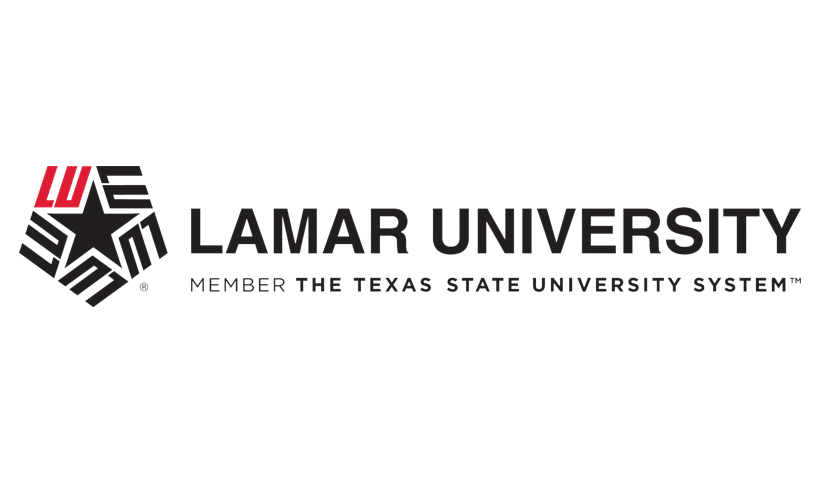Choosing a career in mental health is a significant decision, often filled with questions about the roles, responsibilities, and qualifications associated with different counseling and psychology professions. For prospective students, the path to becoming a Licensed Professional Clinical Counselor (LPCC) or a psychologist can be especially complex, given the similarities in the work these professionals do. However, the training, licensure, and scope of practice for each role vary substantially, impacting not only their career trajectory but also the types of services they provide.
This guide explores the key differences between LPCCs and psychologists, covering roles, education and training paths, and career opportunities. By understanding the distinctions, prospective students can make an informed decision about which career best aligns with their personal and professional goals.
Roles: LPCC vs. Psychologist
Focus and Responsibilities of an LPCC
Licensed Professional Clinical Counselors (LPCCs) primarily focus on helping clients manage personal challenges, emotional difficulties, and mental health concerns. They are equipped to provide therapy for individuals, families, and groups on issues such as anxiety, depression, relationship issues, and coping skills. LPCCs generally focus on short-term counseling strategies aimed at improving clients’ immediate emotional well-being and mental health stability.
LPCCs are trained to:
- Conduct assessments to identify mental health conditions.
- Develop treatment plans in collaboration with clients.
- Apply various therapeutic approaches, such as cognitive-behavioral therapy (CBT) and solution-focused brief therapy (SFBT).
- Help clients manage and overcome specific life challenges, such as career changes, family dynamics, or trauma recovery.
Focus and Responsibilities of a Psychologist
Psychologists, particularly those with doctoral degrees, often take on a broader scope of practice compared to LPCCs. In addition to providing counseling and psychotherapy, many psychologists are licensed to conduct psychological testing, diagnose mental health conditions, and offer advanced, research-based treatment plans. Psychologists can also specialize in areas like clinical psychology, forensic psychology, or neuropsychology, depending on their training and career goals.
Psychologists are trained to:
- Diagnose complex mental health disorders and create in-depth treatment plans.
- Conduct and interpret psychological assessments (such as IQ or personality tests).
- Engage in research and contribute to the academic and clinical understanding of human behavior.
- Treat a range of psychological disorders through therapeutic methods and psychological interventions.
Title and Credentialing Variations for LPCCs
The title and specific scope of practice for LPCCs can vary significantly by state. Some states may use alternative terms, such as Licensed Mental Health Counselor (LMHC) or Licensed Clinical Professional Counselor (LCPC), while others use the LPCC designation. Each state determines the requirements and scope of practice associated with these licenses, meaning prospective LPCCs should review the state-specific requirements where they plan to practice.
Work Environments: LPCC vs. Psychologist
The work environments for Licensed Professional Clinical Counselors (LPCCs) and psychologists can overlap, but key differences exist in the settings where they practice, the types of clients they serve, and the scope of their professional responsibilities.
Where LPCCs Work
LPCCs primarily work in settings that focus on counseling and mental health support. Their work environments often include:
- Private practice – Many LPCCs establish independent practices, providing therapy for individuals, couples, and families.
- Community mental health centers – LPCCs frequently work in nonprofit or government-funded clinics that serve diverse populations, often focusing on short-term interventions.
- Hospitals and healthcare facilities – Some LPCCs work alongside psychiatrists, social workers, and other healthcare professionals in inpatient and outpatient treatment centers.
- Schools and universities – LPCCs may provide academic and emotional support for students through school counseling offices or university wellness centers.
- Substance abuse treatment centers – Many LPCCs specialize in addiction counseling, working in rehabilitation facilities or outpatient substance abuse programs.
- Employee assistance programs (EAPs) – Some LPCCs provide workplace counseling, helping employees manage stress, career transitions, and work-life balance.
LPCCs primarily focus on therapy and counseling, with their roles emphasizing short- to mid-term client support rather than long-term psychological assessment or research.
Where Psychologists Work
Psychologists work in a wider range of settings, including clinical, research, academic, and corporate environments. Their work environments include:
- Private practice – Like LPCCs, many psychologists operate independent practices, offering psychotherapy and specialized treatment. However, they may also conduct psychological testing and assessments.
- Hospitals and medical centers – Psychologists often work in psychiatric hospitals, rehabilitation centers, and general hospitals, where they diagnose and treat complex mental health conditions.
- Government agencies – Many psychologists work in public health organizations, correctional facilities, and military settings, addressing mental health issues in high-need populations.
- Research institutions and universities – PhD-trained psychologists frequently work in academic settings, conducting research, publishing studies, and training future psychologists.
- Corporate and organizational settings – Industrial-organizational psychologists apply psychological principles to workplace behavior, helping businesses improve productivity, employee well-being, and leadership strategies.
- Forensic settings – Some psychologists work in criminal justice settings, evaluating defendants, working with victims, and consulting on legal cases.
While both LPCCs and psychologists work in therapy-focused environments, psychologists often have broader career opportunities in research, academia, and specialized psychological assessment roles.
Consider a Featured Online Counseling Program
| School and Program Information | Online Program? Entry Requirements | Course Information |
|---|---|---|
| Northwestern University
Online MA in Counseling
 CACREP Accredited CACREP Accredited |
✔ Online
GRE Not Required Bachelor's Required |
Prepare to pursue licensure in as few as 18 months Learn MoreFull-time, part-time, and accelerated track options available |
| Liberty University
MA: Clinical Mental Health Counseling (CACREP Accredited)
 CACREP Accredited CACREP Accredited |
✔ Online
Online with required intensives |
Our CACREP-accredited master’s in counseling degree online can help you become an ethical, well-trained mental health counselor with the knowledge, values, and skills you need to empower others to make positive changes in their lives. Online and on campus. Training Champions for Christ since 1971. Learn More |
| National University
Master of Science in Clinical Mental Health Counseling
WSCUC Accredited |
✔ Online
GRE Scores Not Required |
The Master of Science in Clinical Mental Health Counseling is focused on training highly skilled counselors to provide impactful and culturally sensitive mental health services in their communities. Learn More |
| National University
Doctor of Philosophy in Psychology
COAMFTE Accredited |
✔ Online
GRE Scores Not Required |
Earn a degree in Counseling Psychology, Gerontology, or Substance-Related and Addictive Disorder Learn More |
| Mid-America Christian University (MACU)
Master of Science (MS) in Counseling
Higher Learning Commission (HLC) |
✔ Online
100% Online |
Expand your impact with an online counseling degree rooted in faith-based practice. Mid-America Christian University offers the largest Master of Science (MS) in Counseling program in Oklahoma, with emphasis areas in addiction and substance abuse, applied behavioral science, clinical mental health counseling, and marriage and family therapy. Explore the online MS in Counseling at MACU. Learn More |
| Colorado Christian University
Clinical Mental Health Counseling, M.A. - Online Curriculum
 CACREP Accredited CACREP Accredited |
✔ Online
Bachelor's Degree |
Optional program emphasis in Marriage and Family Therapy and Substance Use Disorders. Learn More |
| Colorado Christian University
B.S. - Applied Psychology - Clinical Counseling
|
✔ Online
Regionally accredited by the Higher Learning Commission (HLC) |
CCU's online bachelor's degree in Applied Psychology is available in a non-emphasis format, as well as with an emphases in Clinical Counseling. For students interested in working towards earning both their bachelor’s and master's degree in a Psychology-related field, CCU offers an accelerated academic path through the dual degree program. Learn more and apply for free! Learn More |
| Pepperdine University
Master of Arts in Psychology
Open to all undergrad majors |
✔ Online
No GRE Required |
Earn a Master’s in Psychology Online in 18 Months Learn More |
| Purdue University Global
Masters in Psychology
HLC Accredited |
✔ Online
|
Advance your expertise and career and study learning and behavior approaches, neuropsychological perspectives and technologies, issues in psychopathology, and cognitive psychology. Learn how to apply general psychological theories and concepts. Learn More |
*Sponsored Counseling Programs
For detailed degree information, view the guides to:
Online CACREP Accredited programs | Online MPCAC Accredited programs
Education: LPCC vs. Psychologist
Education Path for LPCCs
To become a Licensed Professional Clinical Counselor (LPCC), individuals typically start with a bachelor’s degree in counseling or a related field, such as psychology or sociology. Although specific undergraduate majors aren’t mandated, coursework in counseling principles, psychology, and human development offers a strong foundation.
After completing a bachelor’s degree, aspiring LPCCs usually pursue a master’s in counseling. Programs can vary in structure, with options for traditional or online master’s in counseling degrees, allowing students to balance studies with personal or work commitments. In many programs, students will complete extensive fieldwork or supervised internships as part of their degree, gaining practical experience before entering the field. It’s important to consider accredited programs, as many states require graduation from an accredited program for licensure.
Prospective LPCCs may also encounter related programs, such as master’s in counseling vs. master’s in psychology degrees. Although both provide valuable skills for the mental health field, a master’s in counseling typically emphasizes clinical skills for therapeutic work, while a master’s in psychology often incorporates a stronger focus on research and theoretical foundations.
Education Path for Psychologists
To become a psychologist involves more extensive education, including both graduate and doctoral studies. Most psychologists begin with a bachelor’s degree in psychology, either on-campus or as an online bachelor’s degree in psychology, which introduces students to foundational psychological theories, research methodologies, and basic clinical concepts.
After earning their bachelor’s, students seeking a career in psychology may proceed to a master’s in psychology or directly into a doctoral program, though some doctoral programs admit students with only a bachelor’s degree. For those looking for flexible options, an online master’s in psychology that doesn’t require the GRE can offer an alternative, especially for working professionals balancing multiple commitments. The master’s degree provides advanced knowledge in psychological concepts and prepares students for further specialization.
To practice as a licensed psychologist, students must complete a doctoral degree, either a PhD in Psychology (focused on research and academia) or a Doctor of Psychology (PsyD) degree (emphasizing clinical practice). A psychology doctoral program typically includes a blend of coursework, practicums, internships, and original research, culminating in a dissertation or capstone project.
Accrediting Organizations for LPCC and Psychologist Programs
Accreditation ensures that educational programs meet industry standards, preparing graduates for licensure and professional practice. Both LPCC and psychologist programs must be accredited by recognized organizations to qualify students for state licensure. However, the accrediting bodies for each pathway differ.
Accreditation for LPCC Programs
LPCC programs are typically accredited by organizations that oversee counseling education and training. The main accrediting bodies include:
- Council for Accreditation of Counseling and Related Educational Programs (CACREP) – The most widely recognized accreditor for counseling programs. Many states require LPCC candidates to graduate from a CACREP-accredited program to qualify for licensure.
- Masters in Psychology and Counseling Accreditation Council (MPCAC) – Some counseling programs, particularly those with a psychology-based curriculum, may be accredited by MPCAC. While accepted in some states, CACREP accreditation is more widely preferred.
- Regional Accreditation (e.g., WSCUC, HLC, MSCHE) – Universities offering counseling degrees must also hold regional accreditation, which ensures the overall quality of the institution.
Accreditation for Psychology Programs
Psychology doctoral programs, particularly those leading to licensure, require accreditation from organizations that focus on psychology education and training. The main accrediting bodies include:
- American Psychological Association (APA) – The primary accreditor for PhD and PsyD programs in clinical, counseling, and school psychology. Most states require APA accreditation for psychologist licensure.
- Psychological Clinical Science Accreditation System (PCSAS) – Recognized for its emphasis on clinical science and research, PCSAS accredits some PhD programs. However, APA accreditation is more widely accepted for licensure.
- Regional Accreditation (e.g., NECHE, SACSCOC, NWCCU) – Like LPCC programs, psychology programs must also be housed within regionally accredited universities to ensure institutional credibility.
Key Differences
- LPCC programs are primarily accredited by CACREP, while psychology programs require APA accreditation for licensure.
- MPCAC and PCSAS are alternative accrediting bodies, but their programs may not meet licensure requirements in all states.
- Both career paths require that programs be housed in regionally accredited institutions to ensure overall academic quality.
Time to Licensure: LPCC vs. Psychologist
The path to becoming a Licensed Professional Clinical Counselor (LPCC) or a licensed psychologist varies significantly in terms of education, training, and time commitment. While both require graduate-level education and supervised clinical experience, the psychologist track is notably longer due to additional academic and licensing requirements.
Time to Become an LPCC
Becoming an LPCC typically takes six to eight years from the start of undergraduate education to full licensure. The steps include:
- Bachelor’s Degree (4 years) – A degree in psychology, counseling, or a related field provides foundational knowledge.
- Master’s in Counseling (2-3 years) – A master’s program in clinical mental health counseling or a related field is required.
- Supervised Clinical Hours (1-2 years) – After earning a master’s degree, candidates must complete 2,000 to 4,000 supervised hours (varies by state).
- Licensing Exam and Application – Most states require passing the National Clinical Mental Health Counseling Examination (NCMHCE) or a similar licensing test.
Once licensed, LPCCs can begin practicing independently in many states, although some may require additional post-licensure supervision for specific services.
Time to Become a Licensed Psychologist
The psychologist pathway is more extensive, typically taking eight to twelve years to complete. The steps include:
- Bachelor’s Degree (4 years) – Most psychologists earn an undergraduate degree in psychology or a related field.
- Master’s in Psychology (Optional, 1-2 years) – Some students earn a master’s degree before pursuing a doctorate, but many doctoral programs accept students directly from undergraduate studies.
- Doctoral Degree (PhD or PsyD, 4-7 years) – A PhD in Psychology (research-focused) or PsyD (clinical-focused) is required. These programs involve coursework, practicums, internships, and often a dissertation.
- Postdoctoral Supervised Experience (1-2 years) – Many states require additional postdoctoral training before licensure.
- Licensing Exam and Application – Candidates must pass the Examination for Professional Practice in Psychology (EPPP) and meet state-specific requirements.
Due to the additional years of study, research, and supervised experience, psychologists have a longer route to licensure compared to LPCCs but gain access to a broader scope of practice, including psychological assessments and advanced clinical interventions.
Careers: LPCC vs. Psychologist
Career Opportunities for LPCCs
Licensed Professional Clinical Counselors (LPCCs) are equipped to work in various mental health settings, providing counseling services for individuals, groups, and families. Their roles focus primarily on helping clients manage issues such as substance abuse, behavioral disorders, anxiety, and depression. LPCCs can be found working in private practices, outpatient mental health centers, hospitals, and other community-based organizations.
With demand for mental health services increasing, the career outlook for LPCCs remains positive, according to the U.S. Bureau of Labor Statistics (BLS). Employment of substance abuse, behavioral disorder, and mental health counselors, a category that includes LPCCs, is projected to grow by 19 percent from 2023 to 2033, significantly faster than the average for all occupations. This growth equates to approximately 48,900 job openings annually, driven by a rising awareness of mental health issues and the need for supportive services.
The median annual wage for substance abuse, behavioral disorder, and mental health counselors was $53,710 in May 2023, with earnings varying based on location, experience, and employment setting. Those in the top 10 percent of earners made more than $89,920 annually, while those in the bottom 10 percent earned under $36,700. Employment in hospitals, where counselors earned an annual median wage of $59,090, was among the top-paying industries for LPCCs, followed by roles in private health practitioner offices and outpatient mental health centers.
Career Opportunities for Psychologists
Psychologists’ roles are often broader, encompassing clinical practice, research, teaching, and consulting. While clinical psychologists work directly with patients, specializing in areas such as trauma, family dynamics, or cognitive behavioral therapy, other psychologists may focus on research or organizational roles within academic or corporate environments.
Psychologists have a robust employment outlook, with overall employment projected to grow 7 percent from 2023 to 2033, faster than the average for all occupations, according to the BLS. This demand reflects a growing need for psychological expertise across healthcare, educational institutions, and organizations focusing on employee well-being and productivity.
The median annual wage for psychologists was $92,740 in May 2023. The top 10 percent of earners made more than $151,880, while those in the bottom 10 percent earned less than $52,430. Earnings vary widely by setting, with psychologists employed in specialized areas or private practice generally earning at the higher end of the scale.
Both LPCCs and psychologists serve important functions in mental health care, yet psychologists often pursue broader or more specialized roles due to their advanced education and clinical training.
FAQ
What are the key differences between an LPCC and a psychologist?
The primary differences between LPCCs and psychologists lie in their educational requirements, clinical scope, and job functions. LPCCs typically hold a master’s degree in counseling and focus on therapeutic counseling techniques to assist clients with mental health and behavioral issues. Psychologists, on the other hand, generally hold a doctorate, which enables them to pursue research, teach, and conduct advanced psychological assessments. In many states, psychologists are also authorized to diagnose and treat mental disorders, while LPCCs provide counseling and support but often do not engage in formal diagnostic testing.
Can LPCCs diagnose mental health conditions?
Whether LPCCs can diagnose mental health conditions depends on state regulations. Some states allow LPCCs to perform limited diagnostic work, while others restrict this function to psychologists, psychiatrists, or social workers. Even where LPCCs can diagnose, their assessments may be less comprehensive than those provided by doctoral-level psychologists who are trained in complex testing and evaluation.
How long does it take to become an LPCC vs. a psychologist?
Becoming an LPCC typically takes around six to eight years, including time spent earning a bachelor’s degree, completing a two-year master’s program, and acquiring supervised clinical hours for licensure. Psychologists often spend eight to twelve years on their training, which includes obtaining a bachelor’s degree, completing a five to seven-year doctoral program, and fulfilling a supervised internship or residency.
Which is better for me: becoming an LPCC or a psychologist?
Choosing between becoming an LPCC or a psychologist depends on your career goals, desired scope of practice, and willingness to pursue advanced education. Those who want to focus on providing therapeutic counseling with a faster path to entering the field may prefer the LPCC route. Those interested in conducting research, performing psychological testing, or working in specialized clinical settings may find that becoming a psychologist better aligns with their goals.
Making the Right Choice: LPCC vs. Psychologist
Choosing between becoming an LPCC or a psychologist is a major decision that can shape your career in meaningful ways. Both roles contribute significantly to the mental health field, yet they offer different paths for working with clients and achieving professional goals. By considering factors such as your desired level of education, clinical responsibilities, and long-term aspirations, you can find the path that aligns best with your personal and professional objectives. Remember to research state-specific requirements and licensure processes to ensure your educational journey meets both your goals and regulatory standards.
List of Programs
Northwestern University 🗹 Online 🗗 Masters
Liberty University 🗹 Online
National University 🗹 Online Courses Start Weekly
National University 🗹 Online Courses Start Weekly
Mid-America Christian University (MACU) 🗹 Online
Colorado Christian University 🗹 Online 🗗 Masters
Colorado Christian University 🗹 Online












